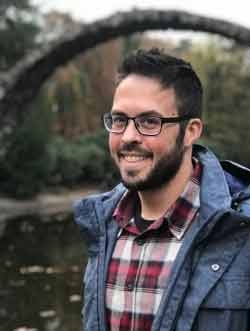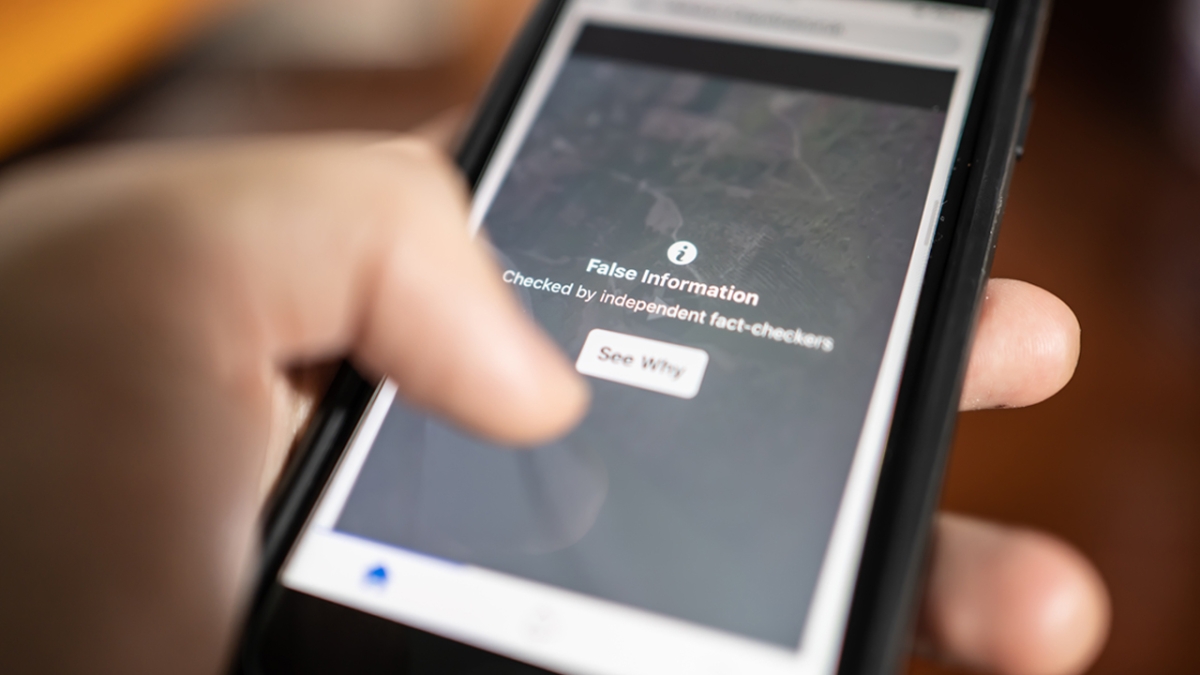One of the biggest problems facing our society today? Disinformation, according to Joshua Garland.
On Feb. 7, Garland joins Arizona State University as an associate research professor in the Center on Narrative, Disinformation and Strategic Influence, where he is determined to make an impact on the issue.
The center, which is a unit of ASU’s Global Security Initiative, combines social science and advanced algorithms to study how stories shape people’s actions and world politics. Its goal is to help protect against hostile attempts to influence the U.S. and democracy.

Joshua Garland
“ASU is a place where there’s a lot of really interesting people to work with and a lot of interesting research to do. The agenda at the Global Security Initiative and the Center on Narrative, Disinformation and Strategic Influence in particular was compelling and aligned perfectly with my research interests,” Garland said.
Garland comes to ASU from the Santa Fe Institute, where he held an Applied Complexity Fellowship. He works to bridge the gap between math theory — which is based on “perfect” conditions — and the messy data of the real world’s complex systems, like climate, belief dynamics or the human heart.
He has also helped people understand how decision-making algorithms work, so that they can use these tools more fairly when it comes to issues like housing or criminal justice.
“Everything the Global Security Initiative does is aimed at untangling incredibly complex challenges to determine root causes and identify potential paths toward a better outcome. Associate Professor Garland’s proven expertise in complexity and complex systems will be an important addition to GSI's efforts to address the types of interwoven and often mutually reinforcing security issues we see today, like the spread of disinformation, climate change and the public’s deteriorating trust in institutions,” said Nadya Bliss, executive director of Global Security Initiative (GSI).
Garland will also hold a faculty appointment in the School of Complex Adaptive Systems. He brings with him extensive experience in student mentorship, having served as a primary adviser to nearly 150 graduate and postdoctoral students, in addition to undergraduate researchers and high school interns.
He is a sought-after speaker who has presented on a variety of topics such as disinformation, countering hate speech and past changes in Earth’s climate. Additionally, he has written over two dozen journal and other publications, including Chaos journal’s most downloaded paper of 2018, “Anatomy of leadership in collective behavior.”
“As Joshua Garland joins the ASU community, he will strengthen our efforts to advance complex adaptive systems science as a foundational science for the College of Global Futures and GSI. His work on misinformation could not be more timely,” said Manfred Laubichler, director of the School of Complex Adaptive Systems.
Garland looks forward to focusing on his disinformation research at ASU. His goal is to find effective ways to combat social polarization as well as false narratives. A return to civil discourse, he argues, protects democracy.
“Counterspeech is one of the most promising avenues for fighting disinformation,” Garland said.
Counterspeech is a strategy to oppose hate speech and falsehoods online. It works by flooding a post that is hateful or misleading with comments that are positive or that reinforce the facts. Citizens are the drivers of counterspeech and can even form special groups to coordinate their efforts.
Sometimes, people who post and help spread misinformation online do so unintentionally. Garland is interested in finding the best way to engage with such people without bullying or polarizing the conversation more.
“How do we make someone that has been misinformed feel heard, not just censor them, and bring them back to a place where we can talk about the issue?” he said.
“We’re excited to have Joshua Garland join the growing team at the Center on Narrative, Disinformation and Strategic Influence,” said Scott Ruston, director of the center. “His expertise significantly increases the in-house technical and analytic ‘horsepower’ of the center as we devise interdisciplinary research programs to better understand the information environment.”
Top photo from Shutterstock
More Science and technology

ASU professor breeds new tomato variety, the 'Desert Dew'
In an era defined by climate volatility and resource scarcity, researchers are developing crops that can survive — and thrive — under pressure.One such innovation is the newly released tomato variety…

Science meets play: ASU researcher makes developmental science hands-on for families
On a Friday morning at the Edna Vihel Arts Center in Tempe, toddlers dip paint brushes into bright colors, decorating paper fish. Nearby, children chase bubbles and move to music, while…

ASU water polo player defends the goal — and our data
Marie Rudasics is the last line of defense.Six players advance across the pool with a single objective in mind: making sure that yellow hydrogrip ball finds its way into the net. Rudasics, goalkeeper…


